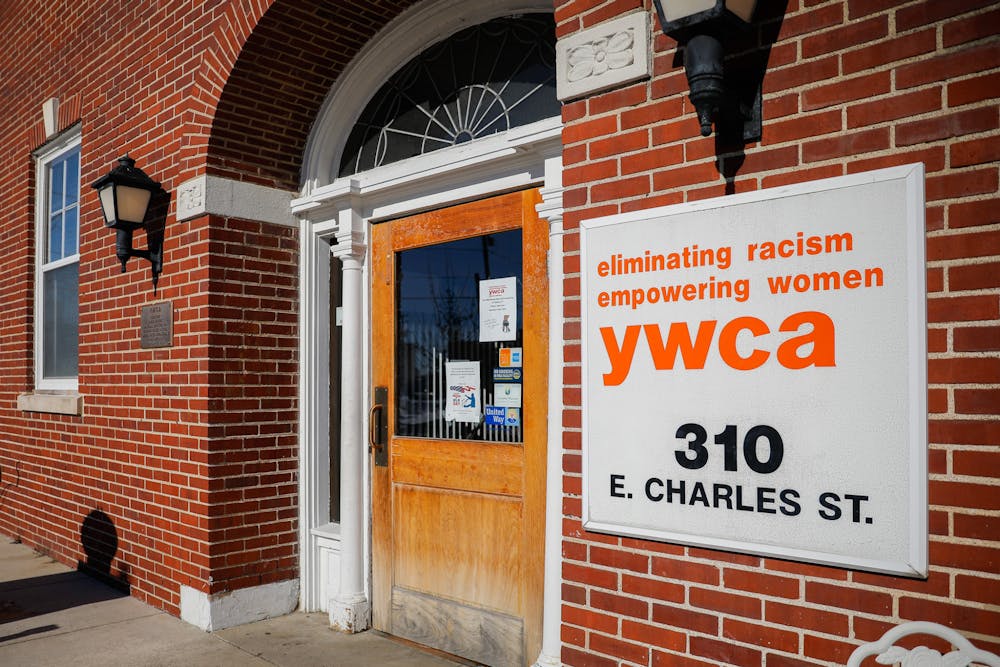The lives of approximately 20 homeless individuals were uprooted early last month when Muncie city officials evicted them from a local encampment.
According to a Dec. 5 Facebook post from Muncie Folk Collective, a nonprofit group focusing on harm reduction, many encampments for individuals experiencing homelessness exist across Muncie; and eviction is common for tenants in these encampments in the area.
Each winter, multiple locations in Muncie serve as warming centers for people seeking shelter. It’s a temporary solution to one of the many issues surrounding the local population of individuals enduring homelessness.
The Young Women’s Christian Association (YWCA) provides shelter to women and children struggling to find housing amid freezing temperatures. A human resources specialist with the group, Angie McKillip, said a solution to Muncie’s homelessness issue should be increased funding to the YWCA facility.
“The need [for housing assistance] has increased so much. We still get funding, and we still get donors, but it's never quite enough to reach as many people as we would like,” McKillip said.
McKillip also said the building’s structure is old and expensive to maintain, which takes money away from the YWCA to fix its utilities. However, the shelter still receives grants to fund its “complimentary, overnight, temporary shelter stay” (COTS) program. This is an emergency shelter for individuals during extreme temperatures to stay the night in a cot until it’s stable enough to go back outside.
“COTS program is for the person who may not necessarily need to — or even sometimes want to — get a job or do anything differently. They're just out on the street, and they need to be warm. COTS is to get them into a safe place,” McKillip said.
YWCA receives heavy foot traffic from homeless individuals, and even if they aren’t looking to spend the night, people can look through the shelter’s “blessing box,” which contains food and toiletries.
McKillip said men can also come into warming stations, but YWCA checks to ensure they haven’t committed crimes against women and children, and vets everyone before permitting them into the building.
“'I’ve had people call here in areas that we don't even serve necessarily, but they're scared to go to some of the shelters in, say, the Indianapolis area [because of a] bad reputation,” McKillip said. “That's one of the biggest things — especially for women with children — making sure they're in a safe place, and no harm will come to them.”
The Center Township Trustee Office in Muncie doesn’t allow overnight shelter, yet people experiencing homelessness can still come into the lobby during regular business hours while it acts as a warming station. The office is open 8 a.m. to 3 p.m. on weekdays and closed on weekends.
Lindsey Campbell, a supervisor at the office, said her role consists of helping those needing monetary housing assistance, encompassing individuals unable to pay their monthly bills for any reason.
To qualify for assistance, one must provide proof of income and regular spending habits through rent, a utility bill or other related living expenses.
“We like to see their bank statements, [and] we have to have a copy of their lease or residency letter,” Campbell said.
Despite the office not serving as a direct housing location for those struggling with homelessness, they work with Muncie Mission to assist sheltered men with monthly bus passes, and the YWCA to help women with their rent payments, if they qualify and the shelter charges them rent for staying for a certain period.
Even if those struggling don’t have proof of income, Campbell said clients must follow through with places that can refer them, such as the food stamp office, Medicaid or locations like Muncie HUB, which is a daytime center associated with the Muncie Mission for those facing homelessness.
Muncie Mission Vice President of Community Engagement Leigh Edwards said the organization sees a dramatic uptick in sheltered clients during the cold months. Due to such an influx in those needing assistance, she said the shelter typically needs more coat donations in all sizes as the winter season progresses, as many individuals enter the shelter without a practical coat or one at all.
The organization houses a donation center for items like clothing, houseware and appliances, and they give away free clothes through their programs and services while storing any leftover donations in one of their five retail stores.
“We see a population on a tight, fixed budget, and so for those people, they're able to come into the retail stores and buy a coat that, maybe if it was at a department store, would be $75, but they're able to buy it from the attic window as our thrift store for five dollars,” Edwards said.
Edwards described her role within the Muncie Mission as an educator to inform people about the realities of the population and individuals they serve. This is because she’s often seen individuals create their own stigmatized stories about the local homeless population.
“We as a public create our own narrative for a person, and so there might be a perception that someone is lazy, or they don't want to work, or that every single homeless person is an addict,” Edwards said.
While Edwards said she’s met with multiple individuals confirming the narrative the public pushes out, many other clients contradict it.
“It's very hard when you are a nice [person] who doesn't directly ever interact with someone who is actively homeless, to imagine all sorts of things,” Edwards said. “But when you sit down and talk to someone as an individual, you will learn that, maybe, all your assumptions about them are completely incorrect.”
Contact Zach Gonzalez via email at zachary.gonzalez@bsu.edu.





The Daily News welcomes thoughtful discussion on all of our stories, but please keep comments civil and on-topic. Read our full guidelines here.